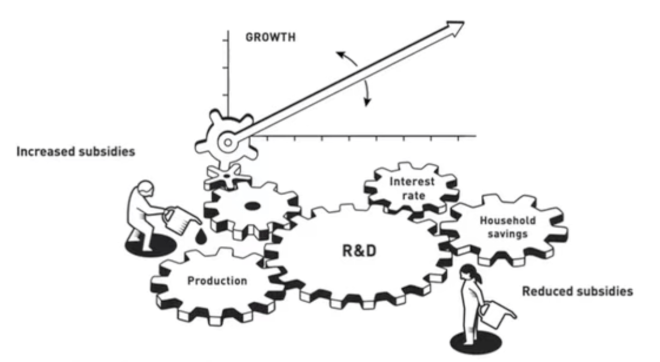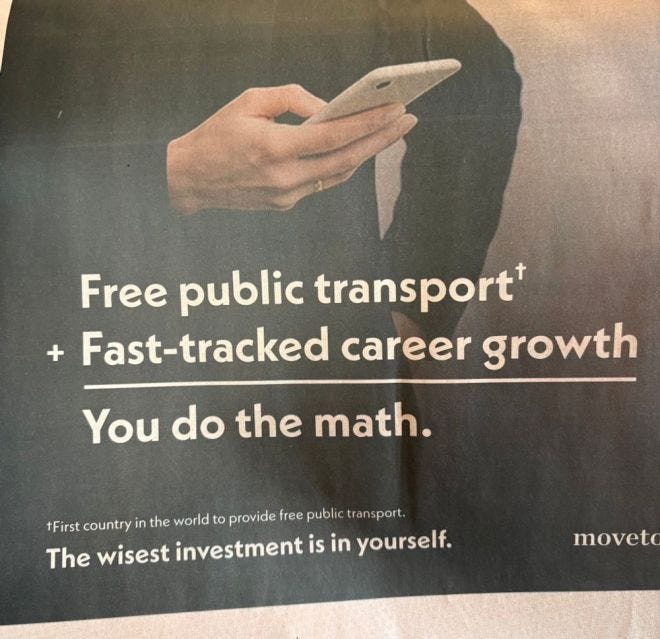Talking about Zohran
and housing and buses, and a bit about Against Money
As you certainly know, Zohran Mamdani was elected mayor of New York last Tuesday. Indeed, if your life is like mine, you may feel you’ve been hearing about little else. The other day, as I was biking my younger kid to school, a young guy pulled up next to us with one of those portable speakers that some people like to use to blast music while biking. Except he wasn’t blasting music, but some kind of news commentary show discussing how Mamdani won. Truly, you can’t get away from it.
For my part, in the past couple weeks I’ve been on three different panels and done four interviews on the Mamdani policy agenda. Two of the panels were not recorded, but I thought I’d share the other one and three of the interviews. (The fourth doesn’t seem to have aired yet.) Perhaps you still are looking for Mamdani content, perhaps especially if it’s focused on the challenges of running the city than the election itself. And presumably if you are reading this you have some interest in my point of view. You could listen to them, I suppose, while you’re cooking, or exercising, or in your car, or from a portable speaker on your bike, or gathered your family around the computer with mugs of warm cider — however you prefer to consume your audiovisual content.
The first one, from October 14, is a roundtable organized by Dissent, with me, the indefatigable tenant organizer and housing advocate Cea Weaver, and City Councilmember Chi Ossé, another rising star of the New York left. This was a great conversation, with, though you can’t see it in the video, an enthusiastic and mostly quite young audience — very different from the crowd you used to expect at a Dissent event.
Also from mid-October, is a podcast interview with the Swedish researcher Max Jerneck (there’s a brief introduction in Swedish, which you can skip unless you happen to speak it.). It’s a long conversation, which covers a lot of ground: the first 50 minutes are on Zohran, then there’s 10 or 15 minutes on Trumpism, and the last 20 minutes or so are about Against Money. This was a nice combination from my point of view, since it was an opportunity to try to link the arguments in the book, which are mostly at a fairly abstract level, with more immediate political questions. There’s also a YouTube version, if you want to see me gesticulating; if I’d known he was posting the video, I would have cleaned up my home office first. The YouTube version also lets you see this funny picture Max pulled from the Nobel Prize Committee’s writeup of this year’s winners, which makes “household savings” literally the driving motor of growth — a nice example of the conceptual framework that the book is trying to help free us from.
Post-election, here is an interview with Sasha Linden Cohen on the show Background Briefing. Among other things, we talk about the politics and economics of free (and fast!) buses. Perhaps the key point to make there is that this is a more common policy than you might think. For example, here (via Doug Henwood) is an ad in the Financial Timesfrom the government of Luxembourg, touting their free transit system.
It’s worth emphasizing here, also, that one of Zohran’s accomplishments in the legislature was creating a pilot program with one free bus line in each borough. So far, this has been quite successful, with ridership on the free lines up by about a third compared with other lines, and no sign that they are cannibalizing service from other parts of the system. If one votes for a pilot program — as large majorities in both houses of the legislature did in this case — then it is presumably because adopting the idea across the board seems at least plausible.
A second post-election interview was with Brian Edwards-Tiekert on UpFront on KPFA, where I am a somewhat regular guest. (I come on about 33 minutes in.) On this one, we talk more about the campaign itself — both the organization of it, and the campaign as a cultural phenomenon. We also talk quite a bit about Zohran’s housing program (which is also the focus of the Dissent roundtable), and about what kind of cooperation can be expected from state government.
One point I made here, which I think has been underappreciated through this whole campaign, is how much national Democratic like Schumer and Jeffries are not typical of New York’s Democratic officials. Even in the primary, Zohran Mamdani got more endorsements from the City Council than Cuomo did. By the general election, almost every important city and state elected Democrat was with him. (His final pre-election rally, where the state’s top three officials served as the warm-up act for Bernie Sanders and AOC, drove this home.) This does not mean that there won’t be serious resistance to his agenda — especially insofar as it involves raising taxes on the rich — but it’s a mistake to imagine an ideologically coherent “establishment” opposing him. I think a lot of Democrats right now, including many self-identified centrists, are not at all sure what they should be doing in this moment, and would be happy to get behind a Zohran-type program if it looks like a winner. Chuck Schumer may see his number one job as “to keep the left pro-Israel,” but Kathy Hochul assuredly does not.
Finally, here’s an unexpected interview from Election Day. While I was out with the kids on one last get-out-the-vote canvass, we were stopped by someone doing video interviews for her YouTube channel (because of course we were, this is 2025). I wasn’t prepared to do much with this platform, but the kids really rose to the occasion.




The last impromptu interview with the kids is extremely sweet ❤️
In the comments on the YouTube channel in which you and your family are interviewed, someone pointed out an astoundingly obvious (in retrospect) factoid for the free-buses debate: the Staten Island Ferry has been free since 1997. So the least pro-Mamdani part of the city has already been the beneficiary of a transit policy like the one he proposes!